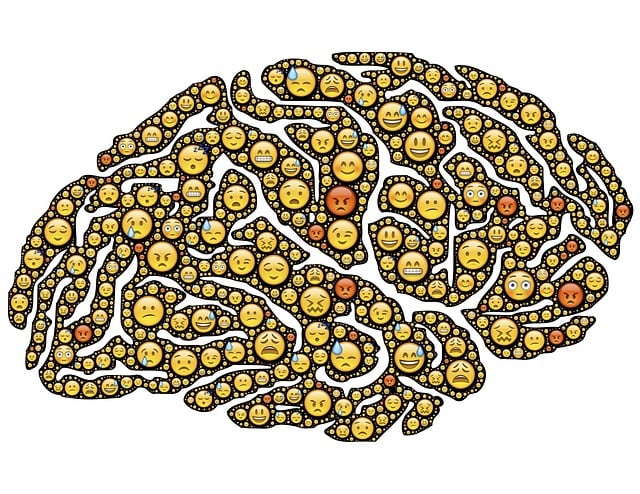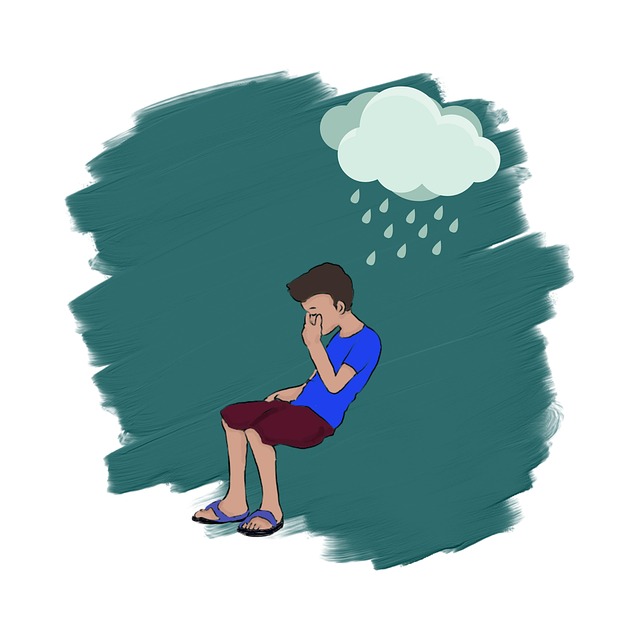The text emphasizes the growing concern of anxiety disorders in young children, advocating for accessible mindfulness-based therapy solutions. Targeting parents, educators, and mental health professionals, the strategy focuses on public awareness campaigns utilizing interactive digital tools tailored to this demographic. By combining empathy-building strategies with mental health education, the app offers a specialized approach to address childhood anxiety effectively. A comprehensive content strategy includes blogs, articles, and videos simplifying complex therapy techniques while normalizing conversations about mental health. Marketing efforts leverage social media, influencer partnerships, and SEO-optimized content to reach parents seeking therapy options. KPIs like user engagement metrics and parent reports of reduced anxiety symptoms are crucial for app enhancements and success in managing stress among young users.
In today’s fast-paced world, mental wellness apps are crucial in addressing growing concerns about anxiety in young children. This article guides parents and app developers through a comprehensive marketing strategy development process for therapy-focused applications. We explore the market need for effective anxiety management tools tailored to children, defining your unique value proposition against competitors. Engaging content strategies and targeted digital marketing channels enhance app visibility. By tracking key performance indicators (KPIs), developers can continuously improve their apps, ensuring they offer the best support for young minds navigating anxiety.
- Understanding Therapy for Young Children with Anxiety: Market Need and Target Audience
- Defining Your Unique Value Proposition: What Sets Your App Apart
- Building an Engaging Content Strategy to Educate and Attract Parents
- Leveraging Digital Marketing Channels Effectively for Reach and Awareness
- Measuring Success: Key Performance Indicators (KPIs) and Continuous Improvement
Understanding Therapy for Young Children with Anxiety: Market Need and Target Audience

Anxiety among young children is a growing concern, highlighting the urgent need for effective therapy solutions and increased public awareness. Therapy for Young Children with Anxiety has become a pivotal topic in mental healthcare, as statistics reveal rising rates of anxiety disorders in this age group. This trend underscores the market demand for accessible and engaging therapeutic interventions tailored specifically to children’s needs.
The target audience includes parents, caregivers, educators, and mental health professionals who are either supporting or seeking support for young individuals dealing with anxiety. By leveraging public awareness campaigns development centered around mindfulness meditation techniques, it is possible to reach a broader spectrum of people. Incorporating cultural sensitivity in mental healthcare practice ensures that these interventions cater to diverse populations, making therapy more inclusive and effective.
Defining Your Unique Value Proposition: What Sets Your App Apart

Defining your unique value proposition is a crucial step in crafting an effective marketing strategy for your mental wellness app, especially when targeting a specific demographic like young children with anxiety. In today’s digital age, where numerous mental health apps compete for users’ attention, standing out requires highlighting what sets your app apart from the rest. For instance, if your app focuses on therapy for young children with anxiety, you could emphasize the use of interactive and engaging tools designed specifically to capture their interest and promote emotional healing processes.
By incorporating empathy-building strategies and mental health education programs design tailored for this age group, your app offers a unique approach that goes beyond traditional therapy methods. This specialized focus ensures that parents and caregivers have access to an innovative solution that not only addresses the needs of anxious children but also fosters their overall emotional well-being. Such a distinct value proposition will resonate with your target audience and form a strong basis for your marketing efforts, ensuring your app gains visibility and trust within this niche market.
Building an Engaging Content Strategy to Educate and Attract Parents

Creating engaging content is key to attracting and educating parents on mental wellness for young children, particularly those struggling with anxiety. Content strategy should focus on addressing common concerns, providing practical advice, and offering hope through success stories. Blogs, articles, and videos can effectively communicate complex therapy techniques, such as cognitive behavioral therapy (CBT) for anxiety, making them accessible and less intimidating.
Integrating topics like emotional intelligence and social skills training within this content can help normalize conversations about mental health. Public awareness campaigns development targeting parents can further educate them on recognizing early signs of anxiety in children, fostering a supportive environment, and encouraging open dialogue about therapy options. By combining educational resources with relatable narratives, your app can establish itself as a trusted guide in navigating childhood anxiety.
Leveraging Digital Marketing Channels Effectively for Reach and Awareness

In today’s digital era, marketing mental wellness apps requires a strategic approach that leverages various online channels for maximum reach and awareness. Social media platforms like Instagram and Facebook offer powerful tools to connect with parents seeking therapy for young children anxiety. By creating engaging content featuring relatable stories, expert tips on stress management, and highlighting the benefits of mental wellness journaling exercises, apps can attract and retain users. Influencer partnerships and targeted ads further enhance visibility, ensuring that the right audiences discover these essential resources.
Additionally, incorporating empathy-building strategies within marketing campaigns fosters trust and engagement. Testimonials from parents who have successfully navigated their children’s anxiety with the app’s guidance can be incredibly persuasive. Combining this with SEO-optimized content centered around keywords like “stress management” and “mental wellness journaling exercise guidance,” allows apps to rank higher in search results, expanding their reach beyond organic social media followers.
Measuring Success: Key Performance Indicators (KPIs) and Continuous Improvement

Measuring success is paramount when developing a marketing strategy for mental wellness apps, particularly those catering to young children’s anxiety. Key Performance Indicators (KPIs) provide a clear framework to evaluate progress and identify areas for improvement. For an app focused on therapy for young children with anxiety, relevant KPIs could include user engagement metrics such as daily active users, average session duration, and completion rates of therapeutic modules. Additionally, tracking the number of parents reporting reduced anxiety symptoms in their children post-app usage is essential.
Continuous improvement should be at the core of your strategy. Analyzing these KPIs allows for data-driven decisions on app enhancements. For instance, if coping skills development workshops are not gaining traction, you can refine content or explore alternative delivery methods. Similarly, evaluating user feedback and reviews will help in designing more effective Mental Health Education Programs that resonate with both children and parents. By regularly assessing and adapting to these metrics, your app can become a powerful tool in promoting stress management among young users.
Developing a comprehensive marketing strategy for a mental wellness app focused on therapy for young children with anxiety is key to reaching parents in need. By understanding your target audience, defining unique selling points, and leveraging digital channels effectively, you can build awareness and attract users. Engaging content that educates parents about childhood anxiety and the benefits of early intervention is essential, while measuring success through KPIs allows for continuous improvement. This strategic approach ensures your app stands out in the market and makes a positive impact on young lives.














